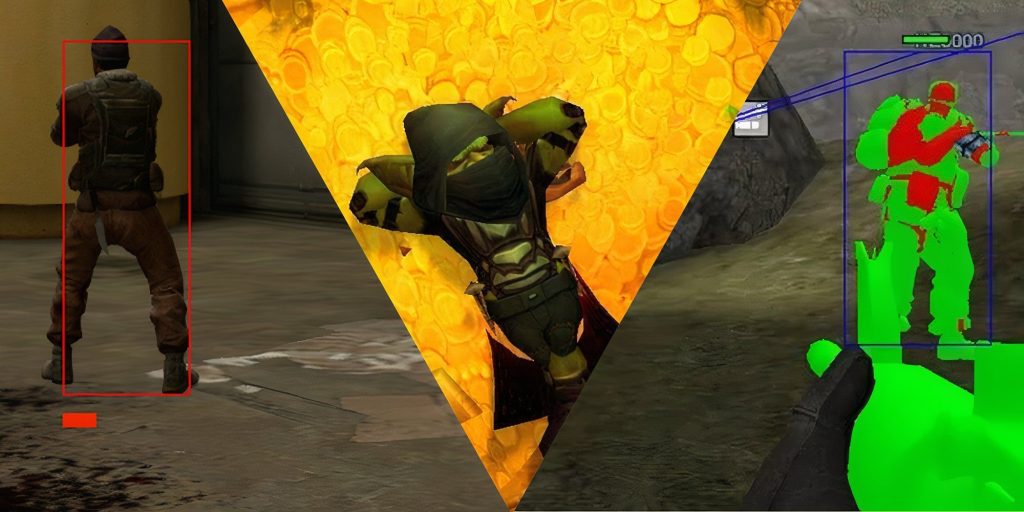Cheating in video games has been a controversial topic for years. Whether it’s using hacks, exploits, or simple cheats, many players have dabbled in the practice at some point infocheats.net. But when, if ever, can cheating be considered ethical or justifiable? While some argue that it’s a natural part of gaming culture, others see it as unfair. This article delves into the nuances of ethical hacking and when cheating in games might actually make sense.
The Fine Line Between Fair Play and Cheating
Video games are designed to challenge players, encouraging them to test their skills and strategies. However, not all players experience games in the same way. Some may face difficulty due to game mechanics, personal limitations, or even the behavior of other players. In these cases, is it ever acceptable to use cheats or hacks?
In multiplayer games like Rust, cheating is a particularly sensitive subject. Many players take the competitive nature of the game seriously, striving to outperform others through strategy and skill. But the introduction of rust hacks has added a layer of complexity to this dynamic. Are these hacks purely malicious, or can they serve a legitimate purpose?
Accessibility and Inclusivity
One argument for ethical cheating revolves around accessibility. Not all gamers have the same physical abilities, and some may find it difficult to enjoy certain games due to limitations in design. In these cases, using hacks or cheats can level the playing field, allowing all players to participate and enjoy the experience.
For example, a player with limited mobility might struggle to keep up with fast-paced gameplay. Using a hack to adjust game speed or enhance certain abilities can transform the experience from frustrating to enjoyable. In this context, the hack doesn’t ruin the game for others but instead allows someone to engage in a way they otherwise couldn’t.
Overcoming Unfair Advantages
In online multiplayer games, cheating often receives widespread condemnation, especially when it disrupts fair competition. However, some players argue that in certain situations, cheating is a form of retaliation against an already unfair system. This could be due to rampant cheating by others or developers who fail to properly address game imbalances.
Take Rust as an example again. It’s not uncommon for players to encounter hackers who dominate servers using unfair advantages, such as aimbots or wallhacks. When legitimate players find themselves constantly overpowered by these rogue elements, frustration sets in. In response, some players might turn to “rust hacks” as a way to even the odds, feeling justified in their actions because they are simply trying to balance out an already unfair playing field.
While this doesn’t excuse cheating, it does highlight the complex motivations behind it. For many players, it’s not about seeking an advantage, but rather about neutralizing the ones that already exist in the game environment.
Enhancing the Solo Experience
In single-player games, the rules around cheating are more relaxed. Since no other players are affected, many feel that using hacks or cheats to enhance gameplay is a personal decision. Here, ethical considerations become less about fairness and more about how the player wishes to experience the game.
Players may use cheats to bypass overly repetitive tasks, unlock hidden content, or modify the game world for a more enjoyable experience. While developers might not have intended for the game to be played this way, some argue that once you’ve purchased a game, you should have the freedom to enjoy it however you like.
In the case of a game like Rust, which is primarily multiplayer but has solo modes, some players may use hacks to practice or experiment without the pressure of competition. For them, the goal isn’t to disrupt others but to improve their own skills in a controlled environment.
The Dark Side of Cheating
While there are arguments for ethical hacking, it’s important to recognize the harm that malicious cheating can cause. In games like Rust, rampant cheating can destroy the community, alienating legitimate players and leading to a toxic environment. Hackers who dominate servers with aimbots, ESPs (extra-sensory perception), and other cheats undermine the integrity of the game and its competitive nature.
For developers, combating cheats becomes a never-ending battle, and when the balance tips too far in favor of cheaters, entire player bases can abandon the game. This not only damages the game’s reputation but also limits its potential longevity.
When Cheating Crosses the Line
Ultimately, the question of when cheating is justifiable comes down to intent and impact. In scenarios where cheating enhances accessibility or provides relief from unfair competition, some might view it as acceptable. However, when it disrupts fair play and harms the gaming community, it’s hard to argue that it serves any ethical purpose.
Games like Rust present a unique case study in how hacks can be used both ethically and unethically. Whether it’s for leveling the playing field against rampant cheaters or enhancing personal enjoyment, the context matters. Cheating, when used responsibly and with the right intentions, may have a place in certain gaming scenarios, but it should always be approached with caution.
At the end of the day, ethical hacking is a subjective matter. For some, it’s a necessary tool to balance an unfair gaming environment. For others, it’s a slippery slope that leads to a loss of integrity in the game. Regardless of where you stand, understanding the motivations behind cheating can help foster more informed discussions about its role in modern gaming.


Comments are closed.